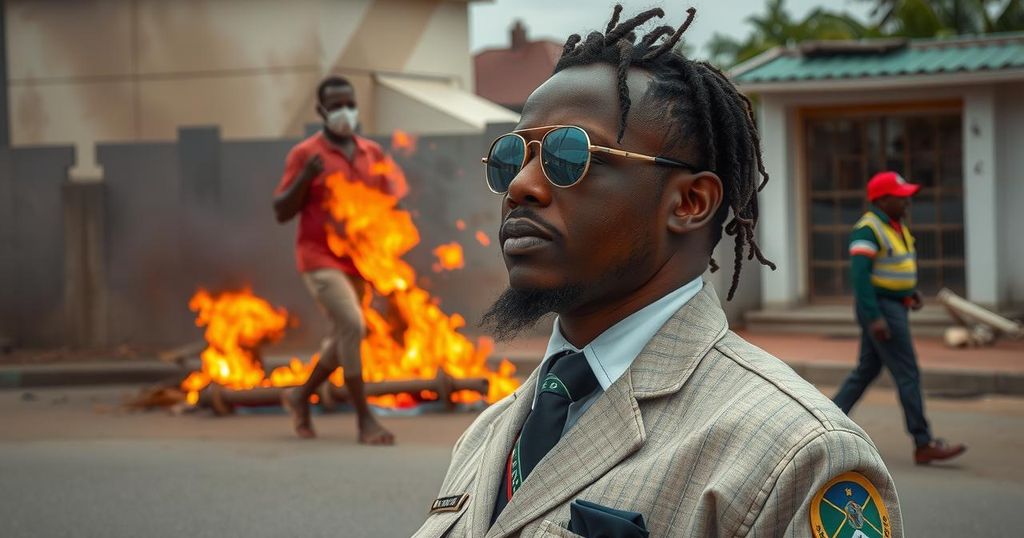Mozambique Unrest Claims Lives Following Election Court Ruling

At least 21 people have been killed in Mozambique following violent protests over the Constitutional Court’s confirmation of the ruling party Frelimo’s election victory. The unrest has prompted increased security measures and resulted in numerous injuries and arrests. The opposition leader issues a call for resilience amid ongoing turmoil, highlighting public discontent with corruption and electoral practices.
Mozambique has erupted in violence following the Constitutional Council’s confirmation of the ruling party, Frelimo’s, victory in the disputed elections held in October. Reports indicate that at least 21 individuals have lost their lives due to the unrest, including two police officers, as stated by the Interior Minister, Pascoal Ronda. The violent protests began shortly after the court’s announcement, with demonstrators alleging widespread electoral fraud and seeking justice for what they deem a rigged election.
In the days following the court’s decision, the country experienced a surge in violence, reporting 236 acts of serious unrest. Minister Ronda noted that security forces had responded by apprehending 78 individuals and tightening security measures across key areas. Critics claim that Frelimo has a long history of electoral manipulation, a claim the party has consistently denied. The clash between police and protesters has resulted in substantial injuries, with at least 25 wounded during these demonstrations, including numerous law enforcement officials.
The opposition party’s leader, Venancio Mondlane, has rallied his supporters on social media, expressing solidarity and preparing for a challenging period ahead. The violent demonstrations, grounded in frustrations over systemic issues such as corruption and high unemployment, have forced citizens to confront the harsh realities of their political landscape. Al Jazeera correspondent Haru Mutasa reported that protesters resorted to burning tires and blocking major roads as a form of resistance against the government’s actions.
Despite the dissent, Frelimo continues to assert its legitimacy, and its supporters reportedly engaged in violence toward public facilities. As tensions rise, the government has vowed to increase military presence at sensitive locations to restore order. Activists and human rights organizations have highlighted the lasting implications of the unrest, noting that Mozambique is witnessing a significant moment in its democratic struggle.
Mozambique has faced ongoing political turmoil, particularly following the recent elections that have been marred by allegations of fraud and violence. The ruling party, Frelimo, has maintained its grip on power, but increasing dissatisfaction among the populace, reflected in protests, underscores a growing desire for accountability and systemic reform. The reaffirmation of election results by the Constitutional Council has ignited a volatile situation, showcasing the fragile state of democracy in the nation. The unrest raises concerns about civil liberties and the role of security forces in quelling dissent.
In summary, Mozambique is experiencing severe unrest following the confirmation of Frelimo’s electoral victory, leading to significant loss of life and public outcry. The violent protests reflect deeper frustrations among the populace regarding corruption and economic struggles. With continued governmental pushback against the demonstrators, including increased military presence, the situation poses serious challenges for both national stability and democratic governance. The unfolding events may have lasting consequences for Mozambique’s political landscape.
Original Source: www.aljazeera.com







